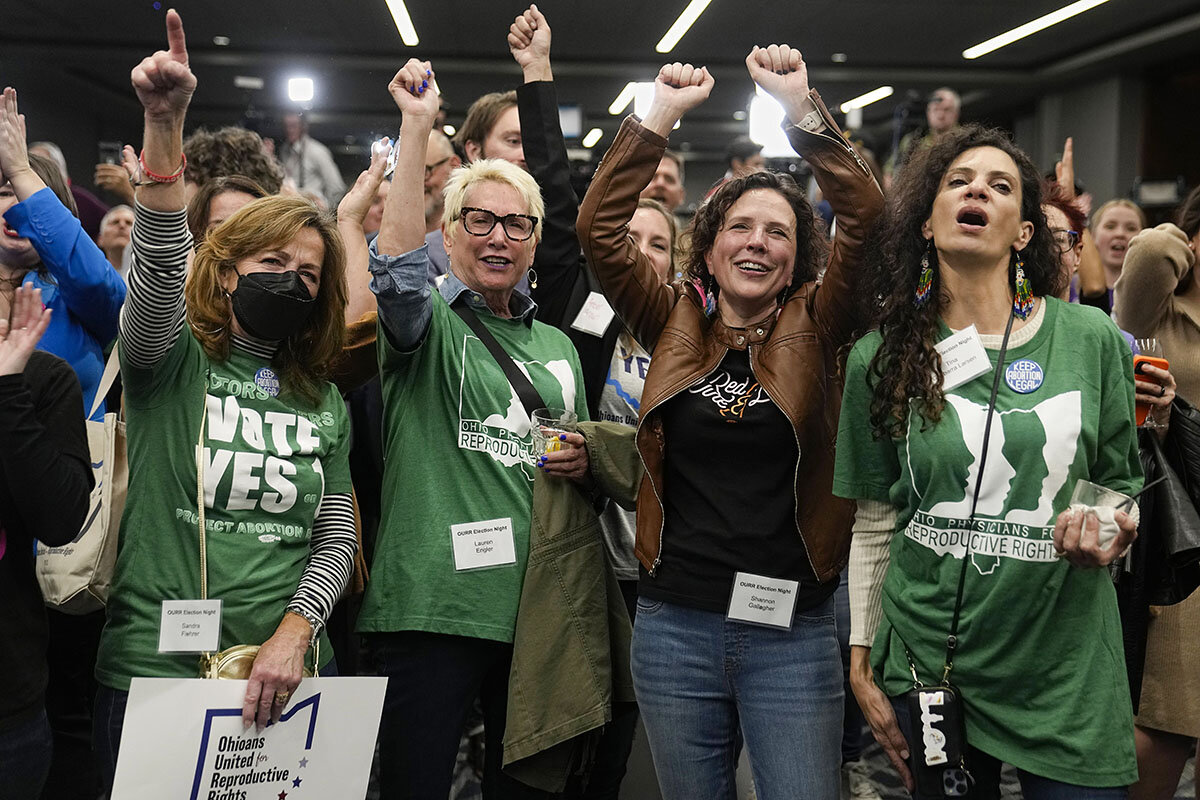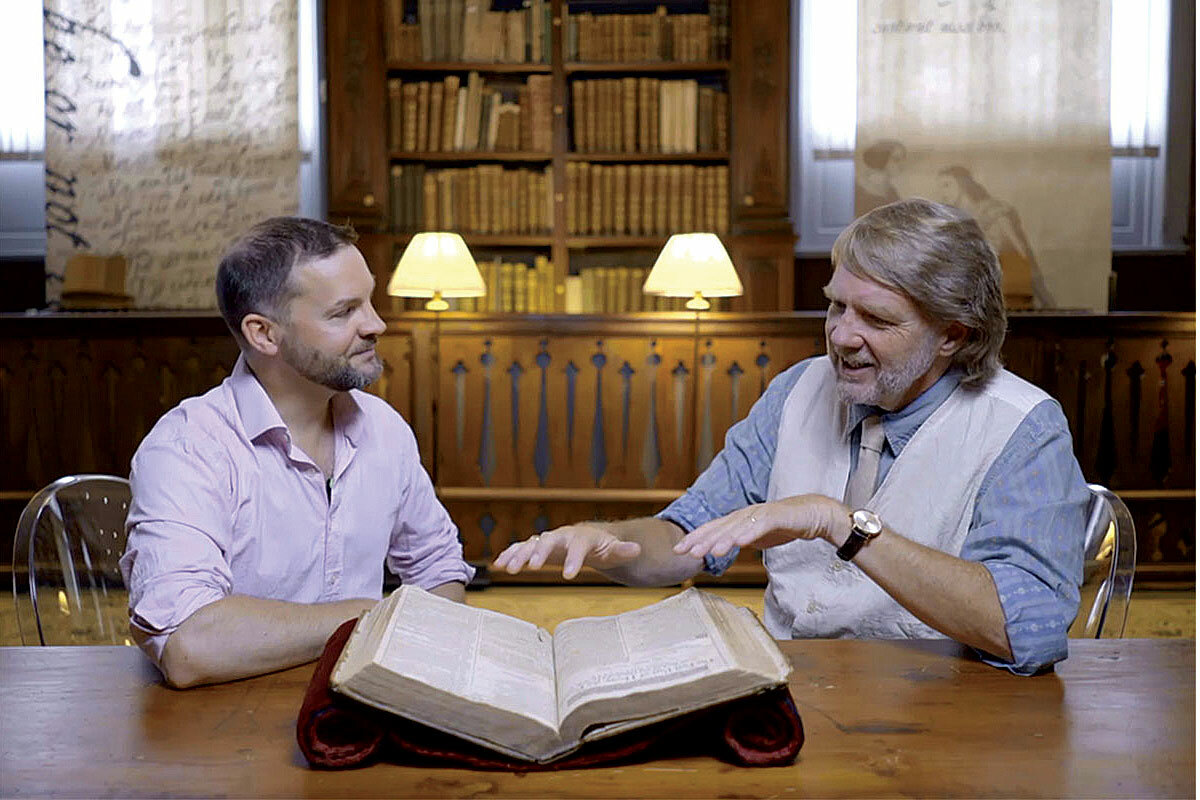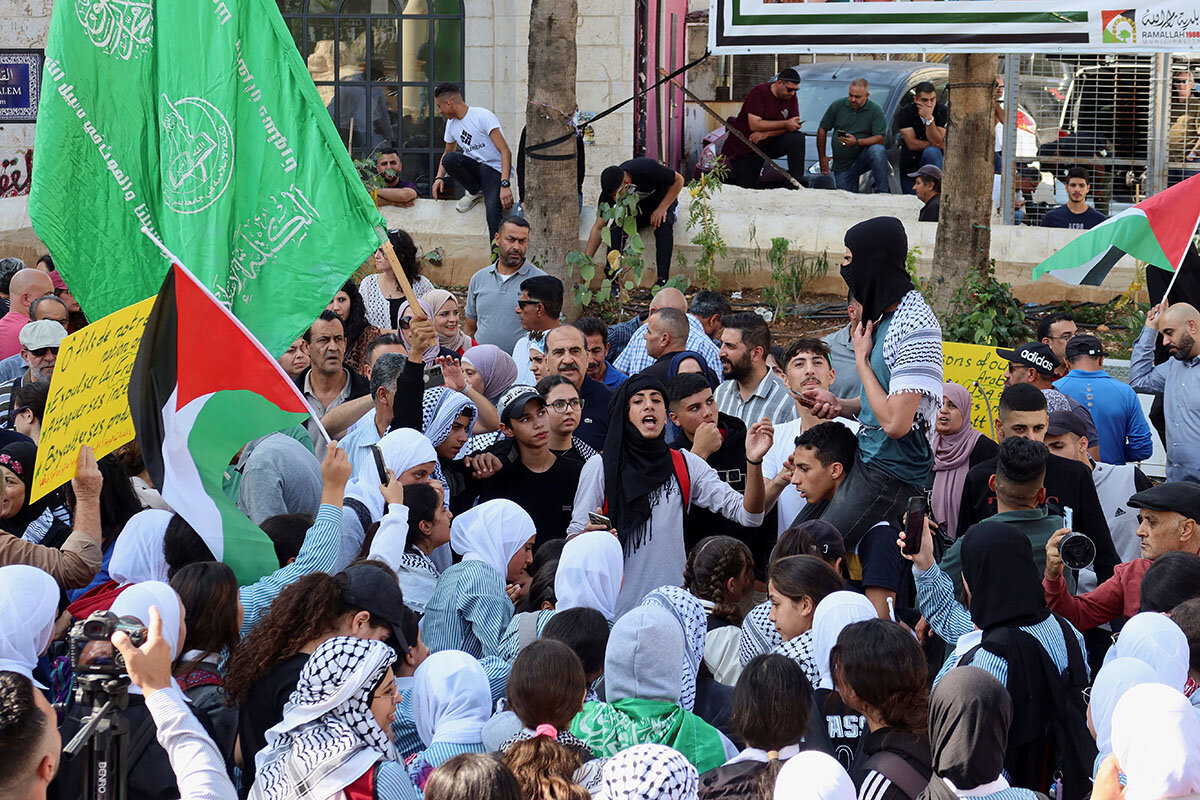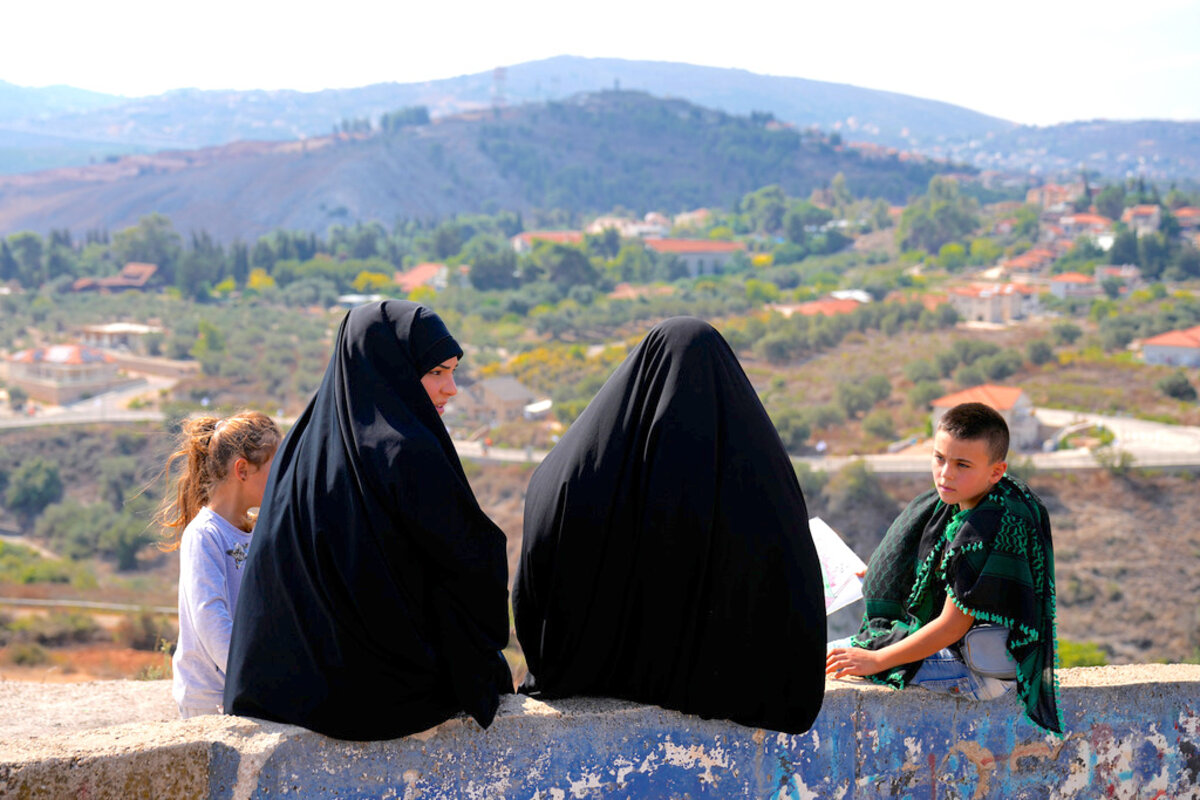What will Gaza look like after the war? Conversations have already begun, and the Palestinian Authority that governs the West Bank is trying to carve out a significant role. The move is certainly in its self-interest but could also open a door to the long-abandoned peace process.

Why is Christian Science in our name?
Our name is about honesty. The Monitor is owned by The Christian Science Church, and we’ve always been transparent about that.
The Church publishes the Monitor because it sees good journalism as vital to progress in the world. Since 1908, we’ve aimed “to injure no man, but to bless all mankind,” as our founder, Mary Baker Eddy, put it.
Here, you’ll find award-winning journalism not driven by commercial influences – a news organization that takes seriously its mission to uplift the world by seeking solutions and finding reasons for credible hope.
Explore values journalism About usMonitor Daily Podcast
- Follow us:
- Apple Podcasts
- Spotify
- RSS Feed
- Download
 Mark Sappenfield
Mark Sappenfield
Talking about the Middle East is always hard. Now, it is becoming almost impossible.
Monday, a Jewish man in California died amid dueling protests, with law enforcement still investigating the circumstances. Tuesday, U.S. Rep. Rashida Tlaib (whom we recently profiled) was censured by House Republicans and 22 Democrats. They cited her defense of a Palestinian chant seen by many as antisemitic. She says it is an “aspirational call for freedom.” Here are takes from a Jewish source and a Muslim source.
Where is the line between antisemitism and criticism? Words are part of the battleground, and finding peace usually requires hearing not just what people say, but also what they mean. Sarah Matusek’s story today shows how some people are overcoming the challenge.
Already a subscriber? Log in
Help fund Monitor journalism for $11/ month
Monitor journalism changes lives because we open that too-small box that most people think they live in. We believe news can and should expand a sense of identity and possibility beyond narrow conventional expectations.
Our work isn't possible without your support.
Today’s stories
And why we wrote them
( 6 min. read )

( 4 min. read )
Elections in nonpresidential years are scoured for potential hints about the bigger elections ahead. Yesterday’s clear message: Abortion is a winning issue for Democrats. What else could the election mean for next November? Sorry, it’s still too early to know.
( 6 min. read )
As we discussed above, conversation about the Middle East has become a war in itself. Imagine being part of a family with both Israeli and Palestinian ties. But many are making it work. One husband notes: The joint commitment to honor all human life was made “before we got into this marriage.”
( 5 min. read )
Schools have long known that first-generation college students often need financial aid. But they also need “college knowledge” – all the cultural things that help you navigate campuses and fit in. Colleges and other groups are getting savvier about helping first-generation students thrive.

( 5 min. read )
Eric Rasmussen is a Sherlock of Shakespeare. He tracks down and investigates original folios (or collections of work), which can be worth millions. This month is the 400th anniversary of Shakespeare’s First Folios. What has Mr. Rasmussen seen in his sleuthing? Cat paw prints and bullet holes, for a start.
The Monitor's View
( 2 min. read )
Outside of Israel itself, perhaps no other country has more closely watched the war in Gaza than Lebanon. As Israel’s northern neighbor and home to an Islamist militant group aligned with Hamas, the country fears it might become a second, full-scale front. Yet as the fighting in Gaza enters its fifth week, that has not happened. One reason may be Lebanese youth.
Since mass protests in 2019 that demanded transparent, secular rule, and then happened again in elections last year, young Lebanese have challenged the political legitimacy and dominance of Hezbollah. That pro-Iran militant group rules the mainly Shiite south and has 150,000 missiles aimed at Israel. In the 2022 elections, Hezbollah and its political allies lost their majority in Parliament.
“There is pressure from Hezbollah’s Lebanese allies, friends and constituents, to step aside and spare Lebanon destruction that would have a long-term impact on the population,” Mohanad Hage Ali, a senior fellow at Carnegie Middle East Center, told Arab News.
Only half of Lebanon’s Shiites are in favor of Hezbollah opening a second front with Israel, according to an Oct. 17 poll done for the Lebanese newspaper Al Akhbar. Among other major religious groups (Sunni, Christian, and Druze), support is much less.
Hezbollah chief Hassan Nasrallah may have gotten the message. In his first speech since the attack on Israel by Hamas, he indicated Friday that there will be no major attack on Israel other than recent strikes against Israeli military positions close to the border.
“The last thing [the Lebanese] need is to be dragged into a war on top of their other woes,” wrote Neville Teller, Middle East correspondent for Eurasia Review, in The Jerusalem Post. “If Nasrallah tried to involve them, he might find himself facing a popular revolt.” Lebanon has an impoverished economy and a government that has been in a political stalemate for more than a year.
In addition to domestic pressure, Hezbollah may have also calculated that Israel and the United States stand ready to hit the group hard if it launches missiles at Israeli civilians. Iran also may be willing to retain Hezbollah as a proxy weapon against Israel to safeguard its nuclear weapons program.
On Oct. 10, President Joe Biden warned outside actors – meaning Iran and Hezbollah – against taking advantage of the Gaza crisis: “I have one word: Don’t.”
“That was music to my ears,” one Lebanese in Beirut, Ruth Boulos, told Politico. “Let’s hope Hezbollah listens,” she added.
A Christian Science Perspective
Each weekday, the Monitor includes one clearly labeled religious article offering spiritual insight on contemporary issues, including the news. The publication – in its various forms – is produced for anyone who cares about the progress of the human endeavor around the world and seeks news reported with compassion, intelligence, and an essentially constructive lens. For many, that caring has religious roots. For many, it does not. The Monitor has always embraced both audiences. The Monitor is owned by a church – The First Church of Christ, Scientist, in Boston – whose founder was concerned with both the state of the world and the quality of available news.
( 4 min. read )
A God-inspired view of others opens the door for hope, peace, and healing – even in the most trying situations.
Viewfinder
Palestinian children play during the Eid al-Adha holiday, in Gaza City, June 6, 2025.

A look ahead
We’re so glad that you could join us today that we’re offering a special treat – an extra story at no additional charge!
Pakistan has long been the first place of refuge for many Afghans, which happened again after the Taliban takeover in 2021. But the Pakistani government has now begun raids to expel 1.7 million Afghans. The shift is supposedly about security, but many Pakistanis are mystified – and demanding more compassion. Click here to read the story.






